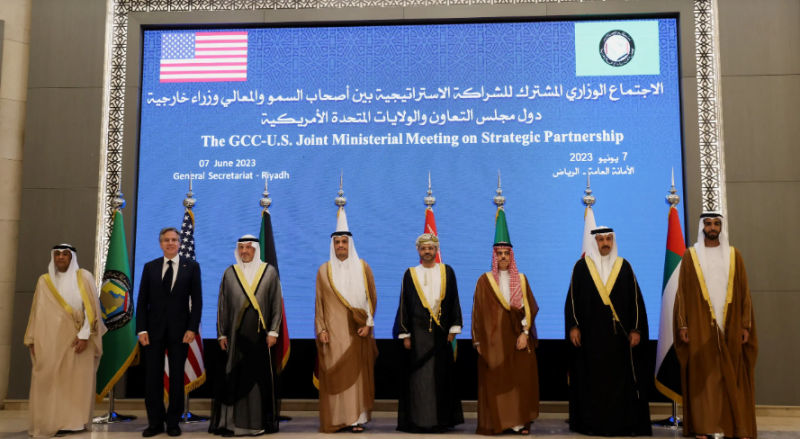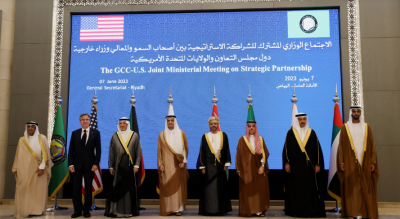The ministerial meeting between the foreign ministers of the Gulf Cooperation Council (GCC) and U.S. Secretary of State Antony Blinken commenced this Wednesday evening in Riyadh, Saudi Arabia. In a speech at the conference, Blinken affirmed that the United States remains committed to its partners in the Gulf region. He stated, "The United States is present in this region to say that we are still deeply engaged in partnership with all of you." He highlighted that the GCC countries are central to the U.S. vision for a more stable, secure, and prosperous Middle East.
During his address, he noted, "We are working together to reach a solution to the conflict in Yemen." Regarding Syria, he remarked, "We are determined to find a political solution in Syria that preserves its unity and sovereignty and meets the aspirations of its people." This meeting is part of the U.S.-GCC strategic cooperation and aims to enhance bilateral relations between the council and friendly countries.
The Saudi Foreign Ministry indicated that the meeting discussed joint coordination and various political and security issues, stating, "We have committed with Blinken to support efforts to achieve lasting peace in Yemen."
GCC Secretary General Jasem Mohamed Albudaiwi confirmed the reality and stability of the U.S.-GCC partnership, clarifying, "We have heard from Washington its continued commitment to the security and stability of the region."
Open discussions took place as Saudi Crown Prince Mohammed bin Salman received Secretary of State Antony Blinken earlier in the morning on Wednesday, where they discussed a wide range of bilateral issues in "open and candid" talks. The meeting reviewed the bilateral relations between the two friendly countries, areas of cooperation across various fields, and ways to enhance them, along with discussing regional and international developments and the efforts being made regarding them.
Blinken's visit to Saudi Arabia comes amidst tensions in relations due to deepening disagreements over issues such as Iran, regional security, and oil prices.
The visit follows Saudi Arabia's commitment, as the largest exporter of crude oil, to further reduce production in addition to what was outlined in a broader OPEC+ agreement to cut supplies, aiming to support falling oil prices despite opposition from the U.S. administration.
An American official stated that Blinken and the Saudi Crown Prince held a meeting lasting one hour and 40 minutes, discussing issues including Israel, the conflict in Yemen, turmoil in Sudan, and human rights, indicating, "There was a good degree of convergence regarding potential initiatives in which we share an interest while also acknowledging our differences."
Jonathan Fulton, a senior non-resident fellow at the Atlantic Council, mentioned that China would assist the Saudis in sectors that the U.S. is hesitant to support, but emphasized that Riyadh's relationship with Beijing does not match the depth of its ties with Washington. He added, "At this stage, I still describe the U.S.-Saudi relationship as strategic, and the Saudi-Chinese relationship as transactional."
In brief remarks before the meeting of the GCC foreign ministers, Blinken sought to reassure them regarding Washington's interest in the region. He stated, "The United States is here to stay in this region, and we remain deeply interested in partnership with all of you."
On the Yemeni issue, Crown Prince Mohammed bin Salman and Blinken discussed potential ways to resolve outstanding issues, with the U.S. Secretary of State thanking the Crown Prince for the Kingdom's role in pushing for a ceasefire in Sudan and its assistance in evacuating American citizens from there.




